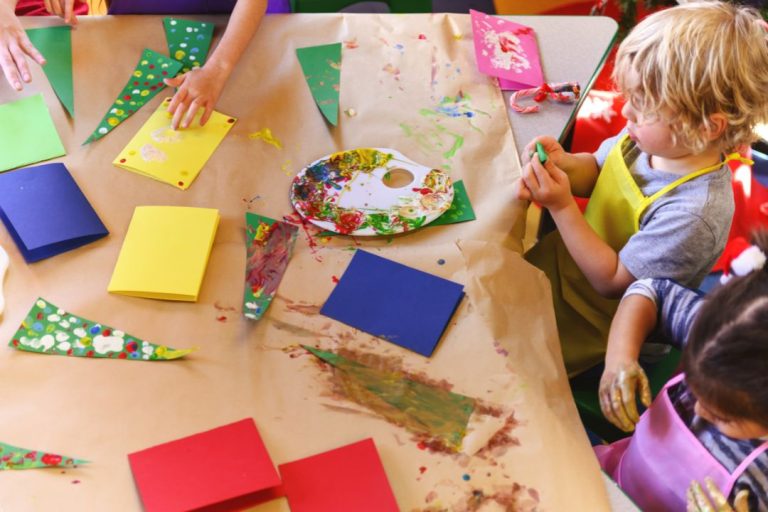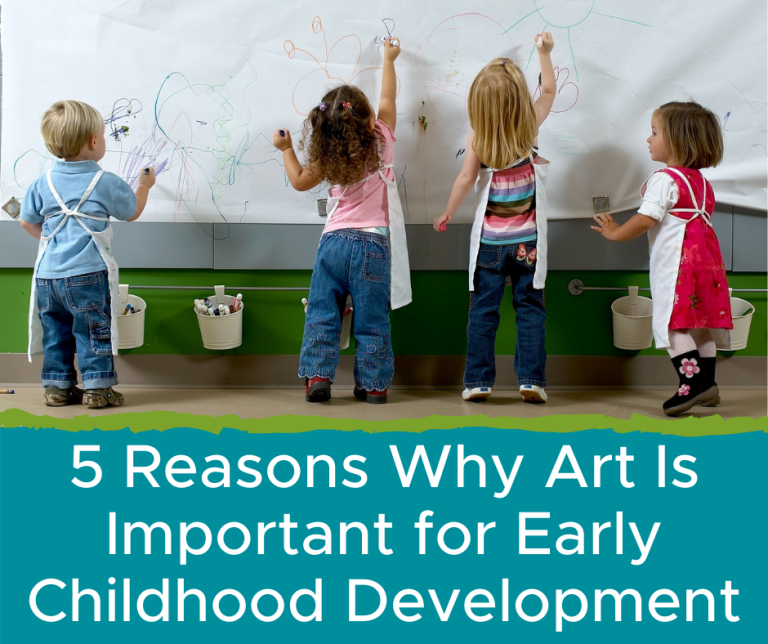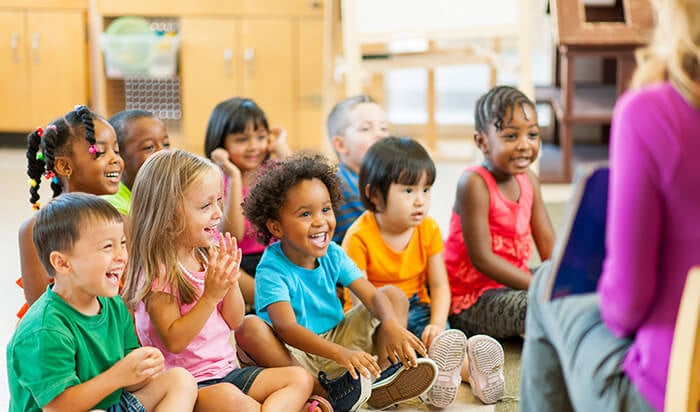What is Early Childhood Education? A Comprehensive Guide
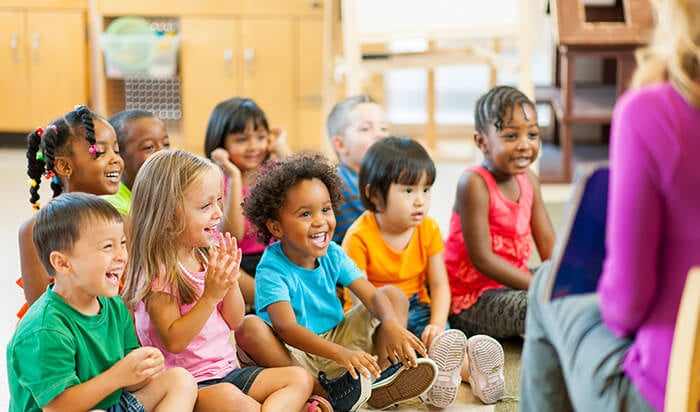
Early Childhood Education focuses on the development of young children through educational programs and activities. It plays a crucial role in laying the foundation for a child’s future academic and social success.
By providing a nurturing and stimulating environment, early childhood education promotes cognitive, emotional, and social growth in children. This type of education typically includes activities that enhance language development, motor skills, and social interactions. Through play-based learning and structured curriculum, early childhood education aims to support children’s overall development and prepare them for future learning experiences.
Parents, teachers, and caregivers all play vital roles in implementing effective early childhood education practices to ensure children reach their full potential.
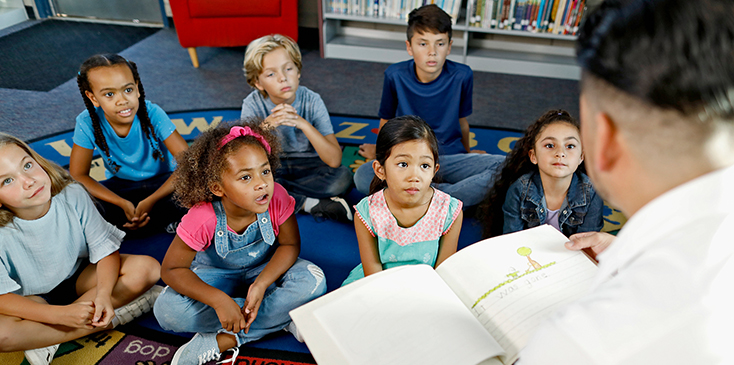
Credit: www.nu.edu
Importance Of Early Childhood Education
Early childhood education plays a crucial role in shaping a child’s future. It is the foundation on which a child’s learning journey begins, providing them with the essential skills and knowledge they need to succeed in school and beyond.
Developmental Benefits
Early childhood education fosters the holistic development of children, encompassing their cognitive, social, emotional, and physical growth. Through engaging activities and play-based learning, children enhance their critical thinking, problem-solving, and communication skills, paving the way for future academic success.
Long-term Academic Success
Research has shown that children who participate in high-quality early childhood education programs demonstrate better academic performance throughout their schooling years. By laying a strong educational groundwork in the formative years, children are better equipped to excel academically and develop a lifelong love for learning.

Credit: www.teachaway.com
Key Components Of Early Childhood Education
Early childhood education plays a crucial role in a child’s development, providing a strong foundation for future learning and success. Understanding the key components of early childhood education is essential for parents, educators, and policymakers to support and nurture young children’s growth and development.
Curriculum Design
Curriculum design in early childhood education focuses on creating a well-rounded and developmentally appropriate program that encompasses various learning domains, including cognitive, physical, social, emotional, and language development. The curriculum is designed to foster a love for learning, curiosity, and exploration, laying the groundwork for future academic success.
Social And Emotional Development
Social and emotional development in early childhood education emphasizes the cultivation of positive relationships, self-regulation, empathy, and social skills. Educators create a nurturing and supportive environment where children can develop a sense of belonging, self-confidence, and empathy for others, laying the groundwork for positive social interactions and emotional well-being.
Play-based Learning
Play-based learning is a cornerstone of early childhood education, as it allows children to explore, experiment, and make sense of the world around them through hands-on experiences. Play-based activities promote creativity, problem-solving, and critical thinking skills, fostering a love for learning and intrinsic motivation in young learners.
Different Approaches To Early Childhood Education
Early childhood education encompasses a range of different approaches that aim to provide young children with a solid foundation for their future learning and development. Each approach has its own unique philosophies and methodologies, catering to the diverse needs of young learners. Understanding the different approaches to early childhood education can help parents and educators make informed decisions about the best educational environment for their children.
Montessori Method
The Montessori Method, developed by Dr. Maria Montessori, emphasizes self-directed learning and hands-on, experiential activities. In a Montessori classroom, children are encouraged to explore and learn at their own pace, with specially designed materials that promote independence and cognitive development.
Reggio Emilia Approach
The Reggio Emilia approach is centered around the belief that children are natural learners who should be active participants in their own education. This approach emphasizes the use of the arts, nature, and community as integral components of the learning process. It encourages collaboration, creativity, and self-expression, with a focus on building strong relationships between children, teachers, and the environment.
Waldorf Education
Waldorf education, based on the philosophy of Rudolf Steiner, focuses on nurturing the whole child – mind, body, and spirit. This approach integrates arts, music, movement, and practical skills into the curriculum, aiming to foster creativity, imagination, and a love for learning. Waldorf schools often prioritize a holistic, experiential approach to education, allowing children to engage in meaningful, hands-on experiences that promote social and emotional development.
Role Of Teachers In Early Childhood Education
Early Childhood Education plays a crucial role in laying the foundation for a child’s lifelong learning and development. A key component of this is the role of teachers, who are instrumental in shaping the early learning experiences of children. Let’s delve into the various aspects of the teacher’s role in Early Childhood Education.
Facilitating Learning
Teachers in Early Childhood Education play a pivotal role in facilitating learning experiences that are tailored to each child’s developmental stage and learning style. They create a nurturing and stimulating environment where children can explore, discover, and develop essential skills through play-based activities and hands-on experiences.
Building Relationships
Another crucial aspect of the teacher’s role is building strong, supportive relationships with each child. By establishing a bond of trust and understanding, teachers create a secure and welcoming atmosphere where children feel valued, respected, and eager to engage in learning. This bond also extends to fostering positive relationships among the children themselves, promoting a sense of community and cooperation.
Parent Involvement
Teachers actively involve parents in their child’s learning journey, recognizing the vital role that parents play in their child’s early development. They communicate regularly with parents, providing insights into their child’s progress, offering guidance on activities to support learning at home, and collaborating to create a cohesive approach to the child’s overall development.
Challenges In Early Childhood Education
Early childhood education is crucial for laying the foundation of a child’s future success. However, there are several challenges that need to be addressed in this field to ensure optimal development for all children.
Access And Equity
Access to quality early childhood education programs is not uniform across all communities, leading to disparities in educational opportunities.
- Limited availability of affordable programs.
- Geographical barriers that prevent some children from accessing early education facilities.
- Lack of resources in underserved areas.
Quality Of Programs
Ensuring high-quality early childhood education programs is essential for promoting optimal learning and development in young children.
- Qualified educators who understand child development.
- Developmentally appropriate curriculum that meets the needs of each child.
- Safe and stimulating environments that support learning and exploration.
Funding
Securing adequate funding is a constant challenge in the field of early childhood education, impacting the quality and accessibility of programs.
| Challenges | Solutions |
|---|---|
| Limited public funding | Advocating for increased government support. |
| Reliance on tuition fees | Seeking alternative funding sources like grants and donations. |

Credit: www.asparis.org
Technology In Early Childhood Education
Early Childhood Education utilizes technology to enhance learning experiences for young children, fostering their cognitive development through interactive tools and educational apps. Integrating technology at this stage encourages creativity and critical thinking skills, preparing children for a tech-driven future.
Early childhood education (ECE) refers to the education of children from birth to age eight. In recent years, technology has been increasingly integrated into ECE classrooms to enhance the learning experience for young children. The use of technology in ECE can benefit children in a variety of ways, but it also raises concerns and limitations that should be addressed.Benefits Of Technology Integration
The integration of technology in ECE has several benefits that can enhance children’s learning experiences. Some of these benefits include:- Improved engagement and motivation: Technology can make learning more interactive and engaging for young children, which can increase their motivation to learn.
- Increased access to information: Technology can provide children with access to a vast amount of information and resources, which can help them learn and explore new topics.
- Enhanced learning experiences: Technology can provide children with new and unique learning experiences, such as virtual field trips and interactive games.
- Improved communication and collaboration: Technology can facilitate communication and collaboration between children, teachers, and parents, which can enhance the learning experience for everyone involved.
Concerns And Limitations
While the integration of technology in ECE can provide several benefits, it also raises concerns and limitations that need to be addressed. Some of these concerns include:- Screen time: Excessive screen time can have negative effects on children’s physical and mental health, including obesity, sleep disturbances, and behavioral issues.
- Lack of social interaction: Over-reliance on technology can lead to a lack of social interaction, which is essential for children’s emotional and social development.
- Cost: The cost of technology can be a barrier for some ECE programs, especially those in low-income areas.
- Teacher training: Teachers may not have the necessary training to effectively integrate technology into their classrooms, which can limit its effectiveness.
Parental Involvement In Early Childhood Education
Parents play a crucial role in their child’s early education journey. Supporting learning at home and collaborating with educators are key aspects of parental involvement in early childhood education.
Supporting Learning At Home
Parents can create a conducive learning environment at home by reading to their child regularly, engaging in educational activities, and limiting screen time.
- Read to your child daily
- Engage in educational activities
- Limited screen time
Collaborating With Educators
Communication with teachers is essential for parents to stay updated on their child’s progress and support their learning journey effectively.
- Attend parent-teacher conferences
- Ask for feedback on your child’s development
- Participate in school activities
Future Trends In Early Childhood Education
Innovations In Teaching Methods
Early childhood education is witnessing a shift towards innovative teaching methods that focus on interactive and experiential learning. Educators are incorporating technology, such as interactive whiteboards and educational apps, to engage young learners. Hands-on activities and project-based learning are becoming increasingly popular, allowing children to explore and learn through experimentation and creativity.
Emphasis On Holistic Development
There is a growing emphasis on holistic development in early childhood education. Educators are recognizing the importance of nurturing social and emotional skills alongside cognitive development. Mindfulness practices and emotional intelligence activities are being integrated into the curriculum to promote self-awareness and empathy among young children.
Frequently Asked Questions
What Is The Meaning Of Early Childhood Education?
Early childhood education refers to learning programs for young children before entering formal schooling. It focuses on cognitive, social, and emotional development through play-based activities and structured learning experiences.
What Is Considered Early Childhood?
Early childhood refers to the period from birth to around 8 years old. It is a critical time for learning and development. During this stage, children form the foundation for their future social, emotional, cognitive, and physical well-being.
What Does It Mean To Be An Early Childhood Educator?
Being an early childhood educator means nurturing young children’s growth, development, and learning through play-based activities and educational experiences.
What Is Learning In Early Childhood?
Learning in early childhood refers to the process of acquiring skills, knowledge, and values during the first few years of a child’s life. This includes language, socialization, emotional development, and cognitive abilities. It is an important foundation for future academic and personal success.
Conclusion
Early childhood education is crucial for a child’s development. It lays the foundation for lifelong learning and success. By providing a stimulating and nurturing environment, children can thrive and reach their full potential. Investing in early childhood education is investing in the future of our society.
It’s a fundamental building block for a better tomorrow.
Lorem Ipsum is simply dummy text of the printing and typesetting industry. Lorem Ipsum has been the industry’s standard dummy text ever since the 1500s, when an unknown printer took a galley of type and scrambled it to make a type specimen book.

